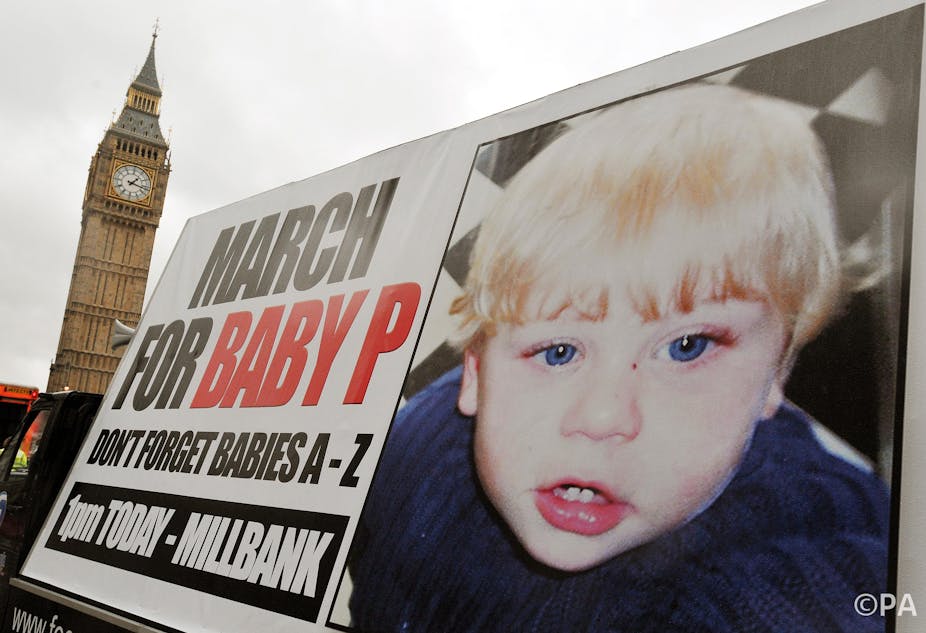Social workers have one of the most difficult jobs to do. Imagine juggling several cases involving children at risk in their own home at the same time - and making decisions that could affect those children and families for the rest of their lives.
There have been notable failings, for example in the Baby Peter case in 2007. But social workers have been saying for some time that they’re overwhelmed with extremely high caseloads and that the time they get to spend with families and to engage with them properly isn’t enough.
So it’s surprising that Louise Casey, in charge of the government’s troubled families initiative, which aims to turn around the lives of 120,000 families by 2015, has been criticising social workers for being “too nice”.
Casey’s world
In Casey’s world, social workers collude with parents and help them make excuses for the bad behaviour of their children - essentially because they are naïve want to believe the best in them. I don’t see why this is such a bad thing.
Casey, a civil servant and formerly a “respect” tsar under Tony Blair’s government, seems to want to move social care away from compassion to harsh decision making.
To push the point home, she says family intervention co-ordinators in her programme - who assess and work with families, make home visits and make parenting suggestions, but may not be trained social workers - are tougher and more assertive. “They crack on. They get on with the job …”, she said. As opposed to traditional social workers, who just want to be nice.
Social workers rely on trust
But what is missing is more trust and engagement, not less. Working with families with difficulties benefits from good relationships - an integral part of helping people make changes in their lives.
This trusting relationship requires time to build up, as with any relationship. In its early stages, if the social worker uses tough love, they aren’t likely to have much impact. But after they develop trust the same suggestions carry much more weight. A recent report into social workers laid out the potential barriers if social workers don’t engage emotionally with their clients.
Another issue is the financial cuts that are being made to support services for these very same “troubled families” such as Sure Start Centres for children.
This means that there are fewer services to send families to when they need help – before they get to the “troubled” stage.
Casey has also made repeated statements that the troubled families initiative is saving local councils money.
With the recent Francis report into the Mid-Staffs Hospital scandal, which saw the drive for financial targets trumping compassionate care, it’s surprising that she wants a move away from greater compassion. From this, the government has said patients - and compassionate care in nursing - come first. Surely the same applies for social work?
Child protection is complex
It’s easy to suggest, as Casey does, that “some of these women are on child protection plans because of the men they insist on living with”.
Domestic violence and the issues that surround it are more complex and require a more concerted approach than just asking the mother to have the man move out.
Of course this depends on the specific case and it’s clear that immediate action is sometimes needed. But it can sometimes leave mothers with little help with the children. Just removing a man from a house without engaging with the root cause – that these mothers are engaging with men that are abusive (and might continue to) and that there are men that abuse women - doesn’t solve the problem.
Where is the increased funding for programmes to avert domestic abuse, and to work with these men to avoid this cycle being repeated elsewhere?
Social workers could challenge other professionals more. This suggestion was also made by Eileen Munro in an important review into child protection in 2012. But lack of communication is a problem across the health and social care system.
In cases that involve social workers, doctors, psychologists and myriad problems experienced by many families with child protection issues, this is especially important. Their lives often feature a web of vulnerabilities that make it very difficult to be good parents.
The most recent biennial review of Serious Case Reviews (the review undertaken when a child is killed or serious harmed by their parents as a result of abuse or neglect) found that 86% of families subject to a review had either domestic abuse, parental mental health or substance/alcohol abuse issues and 63% had just domestic abuse. Of greater concern was that 22% that had all three issues, and the report noted that this combination was particularly toxic.
Again, these aren’t issues easily solved by “cracking on”.
Less admin more time with families
There has been a recent move towards social work “units”, headed by a consultant social worker - called the “Hackney model”, after it was pioneered there. A recent review into this model suggests that services benefit from having a broader skill mix, and enhanced administrative support – with each unit often supported by a unit co-ordinator that provides enhanced administrative support. But budget cuts have decreased, not increased administrative support.
This means more time spent doing paperwork, and less time helping families.
What we need is greater spending for families in trouble, before they get to the stage of requiring the intensive engagement of Casey’s troubled families initiative in the first place – not the easy scapegoating of social workers doing very difficult jobs.

